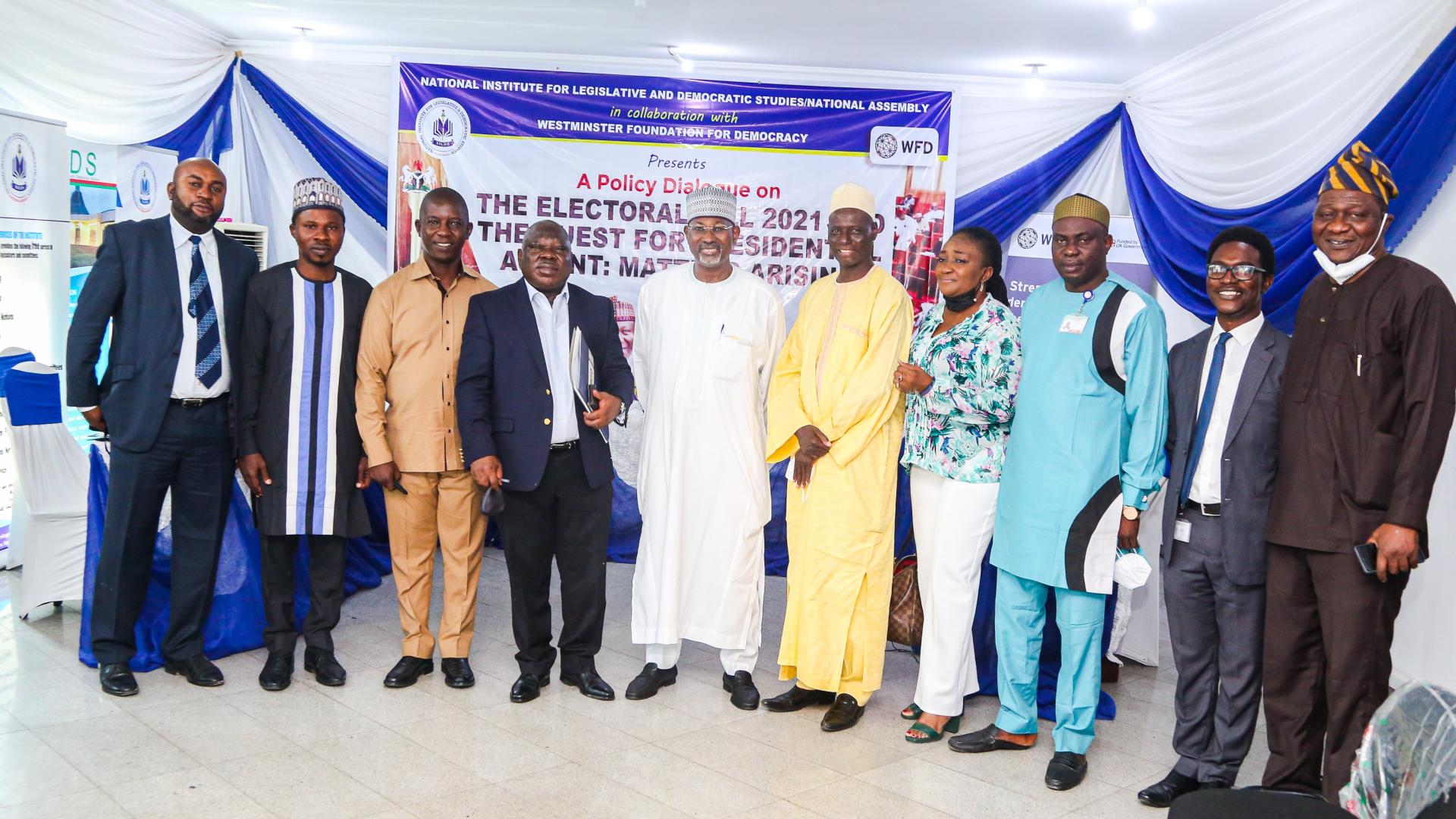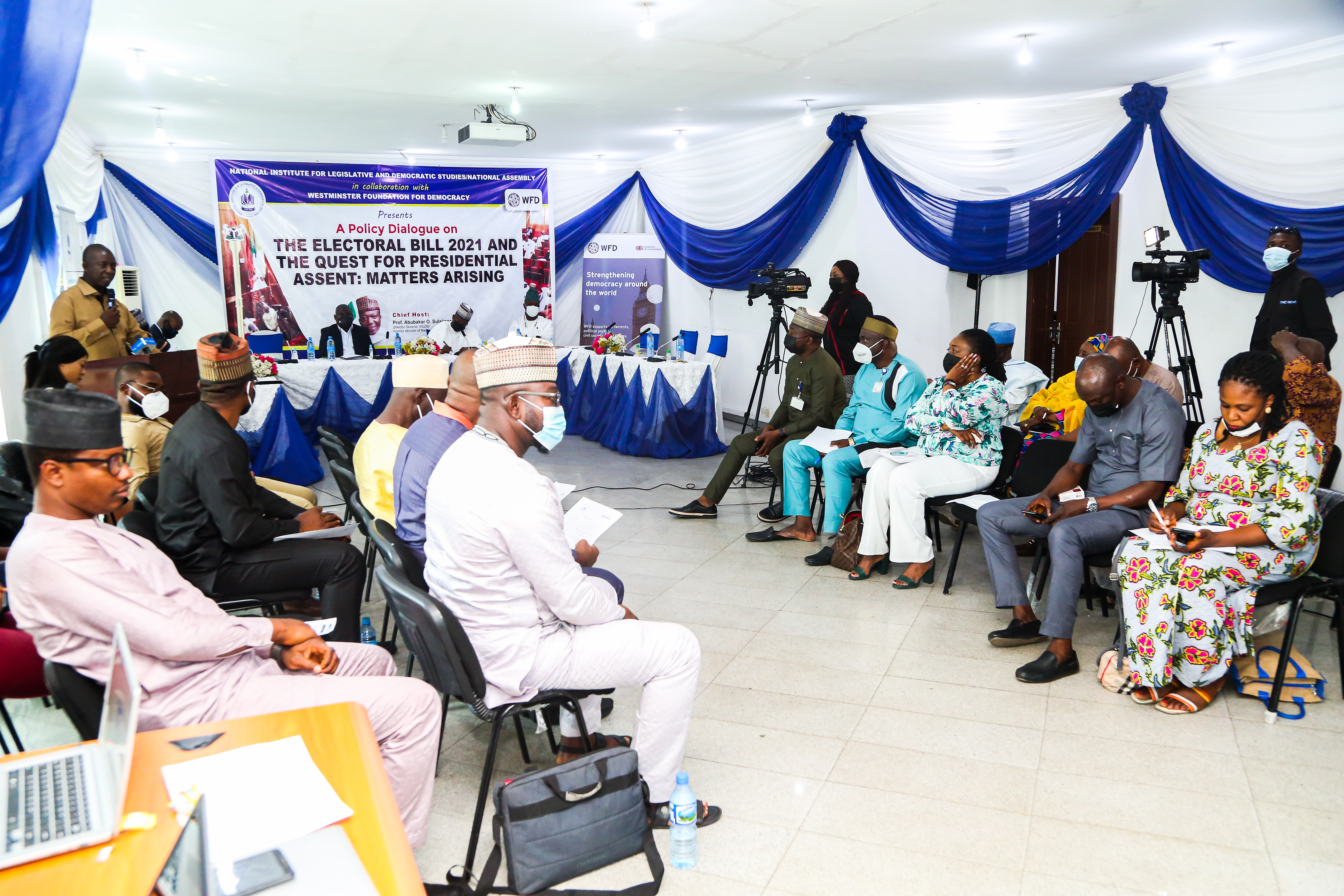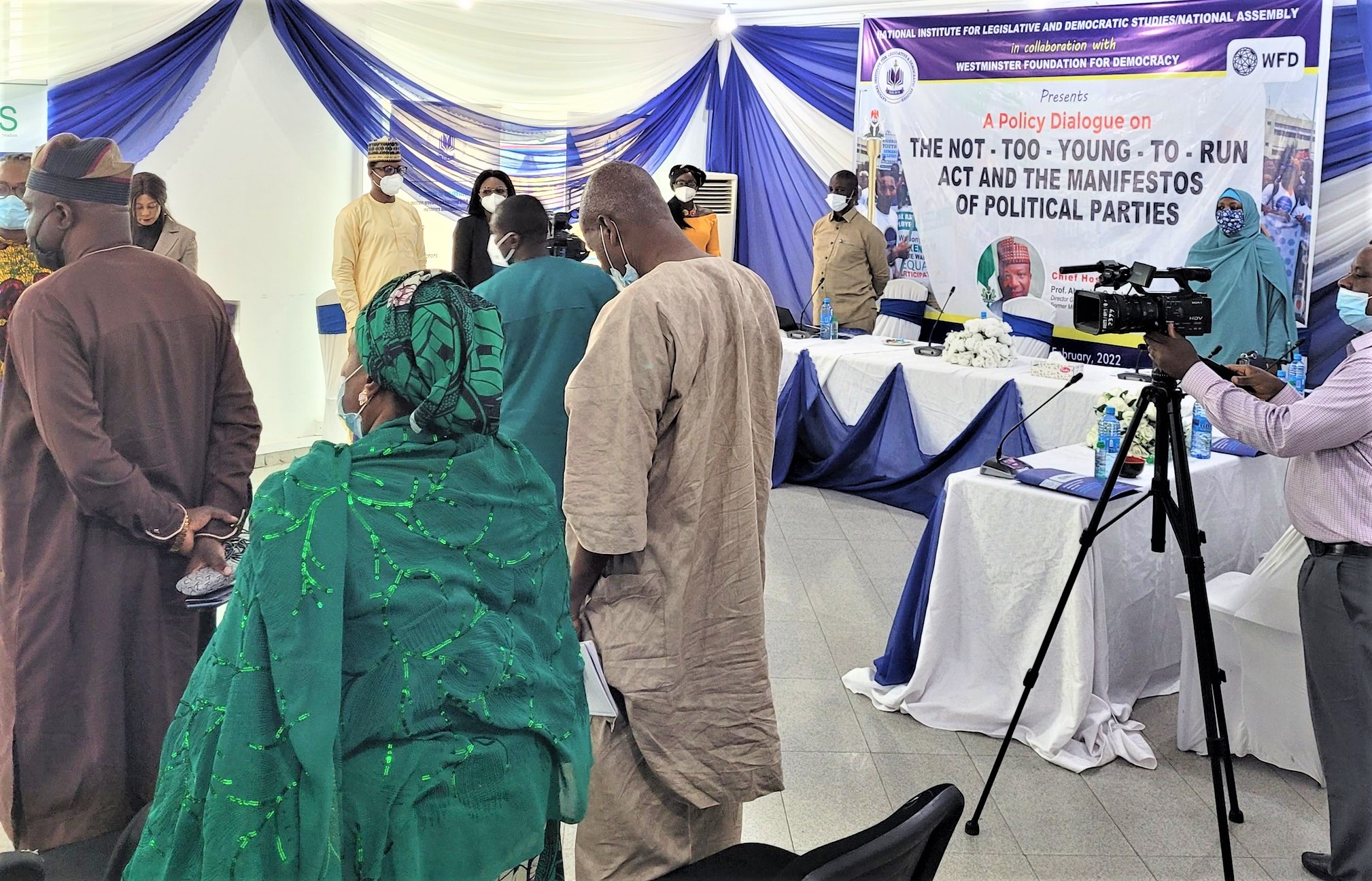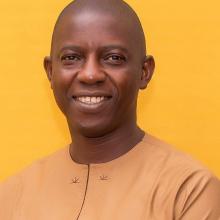Strengthening democracy in Nigeria through dialogue

Democracy provides an environment that respects human rights and fundamental freedoms, and in which the freely expressed will of people is exercised. In other words, in addition to conducting regular, free, and credible elections, democracy thrives and is regarded to be healthy when citizens can participate in governance, and their voices are heard in everyday decisions that affect their lives. In 1999, Nigeria transited from military to democratic governance, and has made steady, though challenged progress democratically. In 2023, Nigerians will be going to the polls to vote in the 7th General Elections since transition to democracy. Historically, this is the longest period of uninterrupted democratic governance, which also witnessed successful transfer of power across political parties in 2015, from the Peoples Democratic Party (PDP) to the All Progressive Congress (APC).
Despite the challenges of insecurity which Nigeria has been grappling with, efforts still must be made to ensure that the electoral process is not only credible, but increasingly inclusive. In the 2021/22 financial year, WFD in Nigeria continued its work in promoting inclusive citizen participation and accountable politics. In partnership with the National Institute for Legislative and Democratic Studies (NILDS), WFD conducted three series of Policy Dialogues on topical concerns that were of interests to the diverse population of Nigeria.
The dialogues brought together a broad range of participants to reflect on concerns of mutual but varying interests, and to proffer doable solutions. They included representatives of youths, women, persons with disabilities (PWDs), INEC, the National Assembly, civil society, media, political parties, and the academia. Deliberations and recommendations from the policy dialogues were transformed into Policy Briefs and submitted to relevant committees of the National Assembly to support their work and influence appropriate policy reviews and development.
The first in the series of the Policy Dialogues discussed “Election Security and Inclusive Participation”. Participants agreed that security should be consistently provided ahead of elections, such that voters, officials of electoral management bodies (EMBs), party agents, the media and observer groups are confident of their security and that of the election materials. It was agreed that a state of insecurity and the consequent militarisation of the election would create fear and deter voter turnout.

The second Policy Dialogue discussed the “Electoral Act Amendment Bill and Perpetual Refusal of Presidential Assent: Matters Arising”. This Policy Dialogue, and the attendant media advocacy projected the voices of citizens and contributed to demands for the President to assent to the Electoral Act. The goal being for the country to have a new and improved law to further build and enhance election credibility. It is relevant to mention that the Electoral Amendment bill was signed into law, following this Dialogue.

The third in the series of the Policy Dialogue discussed the “Not-Too-Young-to-Run law and political Parties: State of Youth Participation”. This dialogue enabled citizens to reflect on whether progress has been made since the law was passed. Exchanges at this dialogue pointed to the need for young people to position themselves to be more competitive ahead of the 2023 elections. Participants used the occasion of the dialogue to demand that legislators revisit and pass women-inclusion-interest bills. Some of the bills were eventually reconsidered and passed by the National Assembly.

The effective conduct and successful outcome of the policy dialogues reiterate the fact that democracy is about the people, and that their voices must be heard for democracy to thrive. Young people, male (38.9%) and female (37.4%), under the age of 39 years constitute 76% of Nigeria’s population; a huge demography which needs to be more included in the governance process. Women on the other hand constitute 49.32% of Nigeria’s population and have continued to be excluded in terms of representation in government and decision-making processes. The policy dialogues enabled critical stakeholders to interface with MPs and top-level officials of government. Youth and women groups had candid discussions with officials of government in attendance, enabling true communication.
Products of the policy dialogues, which included policy briefs on actionable recommendations enable a rights-based approach to enhancing meaningful participation of underrepresented groups. The products will continue to serve as advocacy tools for advancing inclusion. The intense media advocacy around the electoral bill and the refusal of presidential assent was a point in reference; the bill was signed a week after. At the same time, the dialogue sessions enhanced the capacity of target groups and focused organisations and networks to foster inclusive participation in democratic processes ahead of the 2023 general elections. Ultimately, keeping the civic spaces open and promoting healthy dialogues is fundamental to deepening democracy.
Adebowale Olorunmola is the WFD Country Representative in Nigeria.
